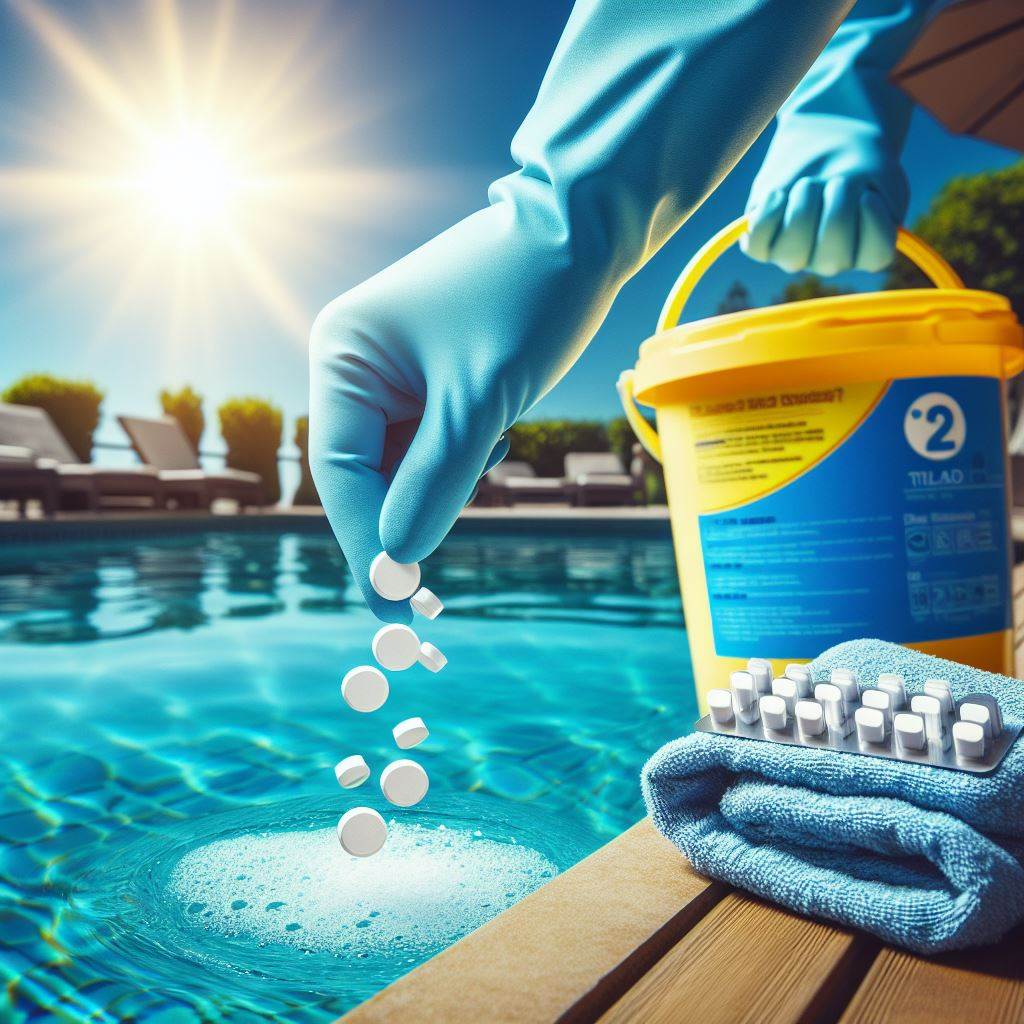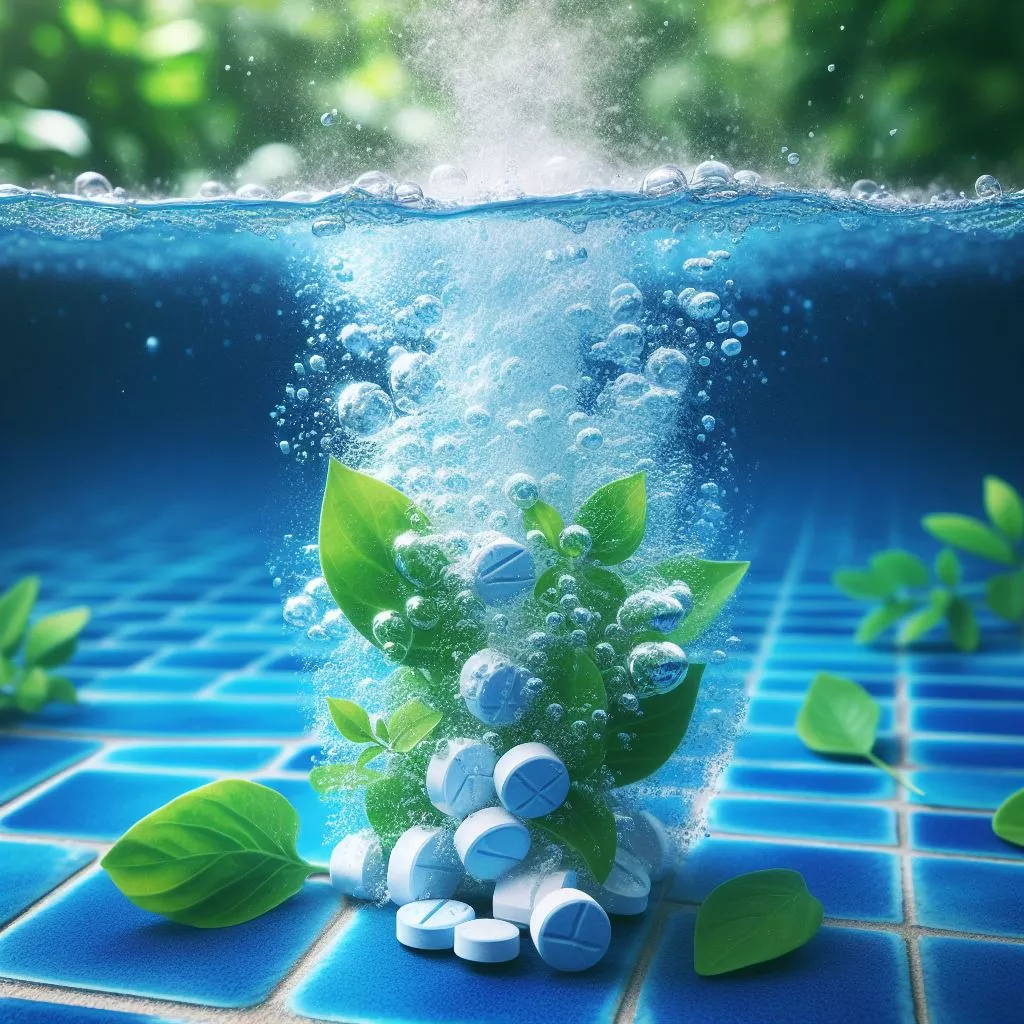In the realm of water treatment and sanitation, chlorine tablets have emerged as a versatile and cost-effective solution for disinfecting water, ensuring its safety for consumption and recreational use. However, with the ever-evolving landscape of water quality concerns and technological advancements, there’s a myriad of novel questions surrounding the selection and usage of these tablets. This article delves into ten cutting-edge inquiries, providing comprehensive answers to guide you through the process seamlessly.

I. What are the latest advancements in chlorine tablet formulations?
Answer:
Recent advancements in chemistry have led to the development of stabilized chlorine tablets that maintain their potency longer, even in harsh environmental conditions. These tablets incorporate buffering agents to resist degradation from sunlight and heat, ensuring consistent disinfection performance. Additionally, some formulations are now eco-friendly, minimizing the release of harmful byproducts during the disinfection process.
II. How do I determine the right chlorine tablet strength for my application?
Answer:
Choosing the appropriate strength hinges on several factors: water volume, contamination level, and desired disinfection time. A general rule is to consult the manufacturer’s guidelines or perform a pilot test to determine the minimum effective dose. Higher strength tablets may be needed for heavily contaminated water, while lower strengths suffice for routine maintenance or smaller volumes.
III. Are chlorine tablets safe for use in swimming pools?
Answer:
Absolutely, chlorine tablets are widely used in swimming pools to maintain water clarity and kill harmful bacteria and algae. However, it’s crucial to follow the recommended dosage to avoid irritation to swimmers’ skin and eyes. Regular testing of water chemistry, including pH and free chlorine levels, is essential to maintain a safe and enjoyable swimming environment.

IV. Can chlorine tablets be used for emergency water purification during disasters?
Answer:
Yes, chlorine tablets are an invaluable tool for emergency water purification. They can quickly disinfect contaminated water sources, making them safe for drinking. Portable and easy to store, they’re often included in disaster relief kits. It’s important to follow proper dosage instructions and let the water stand for the recommended time before consumption.
V. How do I properly store chlorine tablets to maintain their effectiveness?
Answer:
Chlorine tablets should be stored in a cool, dry place, away from direct sunlight and moisture. Extreme temperatures can degrade their potency, while humidity can cause clumping. Ensure the container is tightly sealed to prevent air exposure and keep them out of reach of children and pets.
VI. What are the potential side effects of overdosing with chlorine tablets?
Answer:
Overdosing with chlorine tablets can result in water with an unpleasant chlorine smell and taste, as well as irritation to skin and eyes upon contact. In extreme cases, it can generate harmful byproducts like chloramines, which can exacerbate respiratory issues. Regular testing and adjusting the dosage based on water chemistry can prevent such occurrences.
VII. Are there any alternatives to chlorine tablets for water disinfection?
Answer:
While pool chlorine tablets are a popular choice, there are alternatives. Ultraviolet (UV) light systems, ozone generators, and iodine tablets are among the options. Each has its unique advantages and limitations, such as UV’s effectiveness without chemical residuals or iodine’s suitability for small volumes. The choice depends on specific needs, cost considerations, and environmental factors.
VIII. Can chlorine tablets be used in conjunction with other water treatment methods?
Answer:
Yes, chlorine tablets can be part of a multi-barrier approach to water treatment. For instance, they can be used after sediment filters to kill any remaining pathogens. However, caution must be exercised when combining chemicals to avoid adverse reactions or reducing the effectiveness of each method.
IX. How do I dispose of used chlorine tablets safely?
Answer:
Used or expired chlorine tablets should be disposed of according to local regulations, often as hazardous waste. Do not flush them down drains or discard them in regular trash. Some communities have designated collection centers for such materials. Always refer to the manufacturer’s instructions and local guidelines for safe disposal.
X. What are the long-term implications of using chlorine tablets on water quality and the environment?
Answer:
The long-term implications depend on proper usage and disposal practices. When used correctly, chlorine tablets effectively disinfect water without significantly altering its natural composition. However, overuse or improper disposal can lead to environmental contamination, particularly through the release of chlorine gas or harmful byproducts. Regular monitoring of water quality and adherence to environmental regulations are key to minimizing these risks.
Conclusion
In conclusion, chlorine tablets offer a powerful and convenient solution for water disinfection across various applications. By addressing these novel questions and adopting best practices, users can harness their full potential while ensuring the safety of both humans and the environment.

 Instant
Quote
Instant
Quote Email
Us
Email
Us